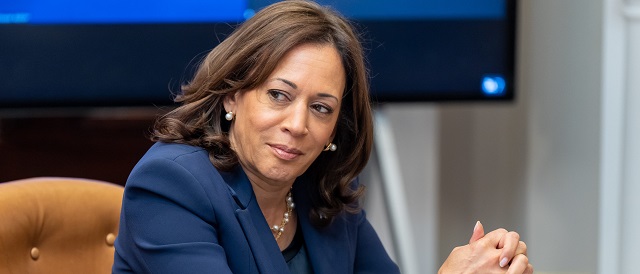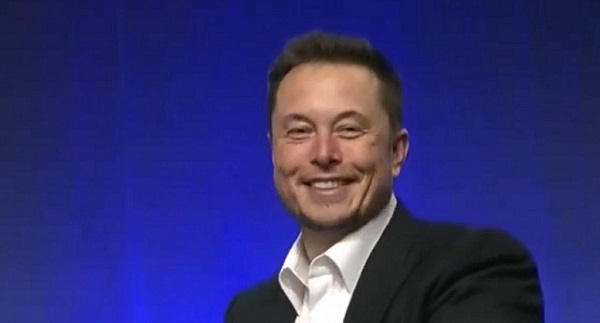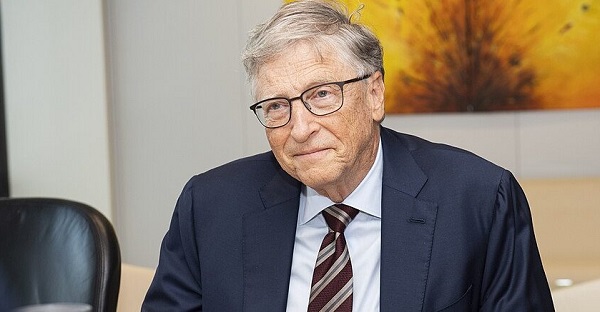Automotive
Continuing EV Bloodbath Leaves Harris With A Lot To Answer For

 From the Daily Caller News Foundation
From the Daily Caller News Foundation
Once the ongoing effort by the legacy media to reinvent presumptive Democratic nominee Kamala Harris as a dynamic leader and competent campaigner passes, we will presumably enter the part of the presidential race in which we actually examine her real record on the key issues.
When — or if — that time ever arrives, the vice president will have a lot to explain where energy policy is concerned.
Last week I provided a high-level overview of some of the radical policies Harris has supported over her time in office in California and Washington, D.C. Today, I will address Harris’s advocacy for electric vehicles and buses, and the expanding bloodbath it has helped to create.
Let’s begin with a speech Harris delivered in Brandywine, Maryland on December 13, 2021. There, Harris spoke to an audience including Energy Secretary Jennifer Granholm, assorted Maryland officeholders, and workers at the Brandywine Highway Maintenance Facility. As part of her remarks, the vice president delivered a ringing endorsement of electric vehicles and her administration’s plans to try to subsidize them into automotive market dominance.
“The pollution from vehicles powered by fossil fuels has long harmed the health of communities around our country,” Harris said. “But there is a solution to this problem, and it is parked right behind me … electric cars, trucks, and buses — they don’t produce tailpipe emissions that irritate the nose and eyes, that decrease lung function, that increase susceptibility to respiratory illness.”
Harris added: “That means manufacturing millions of electric cars, trucks, and buses right here in our country. That means outfitting thousands of EV — electric vehicle — repair garages, just like this one. And it means installing a national network of EV chargers.”
That speech took place after congress had enacted the 2021 Infrastructure Investment and Jobs Act containing more than $200 billion in clean energy subsidies. Congress passed the Orwellian-named Inflation Reduction Act and its $369 billion in similar subsidies eight months later.
How has all that worked out for America three years down the road? As I pointed out a few weeks ago, every pure play EV maker in the U.S. is now either in bankruptcy or teetering on the brink. Ford reported last week that its EV division, Ford Model e, lost about $50,000 per unit sold during the second quarter, and that was the best quarterly result the company has reported in over a year. Even Tesla has started the year with a pair of disappointing quarterly results amid rapidly slowing consumer demand for electric vehicles.
The Biden-Harris dreams of subsidizing a national fleet of high-speed EV chargers into existence has also come up a crapper. The Washington Post and others reported in April that Granholm’s Energy Department has invested a whopping $7.5 billion to install 5,000 such charging stations around the country but had only managed to activate 7 to that point.
Harris also endorsed a $5 billion EPA-managed program included in the Infrastructure law to fund the adoption of battery electric buses for targeted school systems around the country. Thus far, EPA has released two tranches of federal grants totaling $1.9 billion, but to disappointing results. Of the 389 school districts targeted by the grants, just 23 have reported successful acquisition of a total of 60 buses that have been placed into service. But another 50 of those districts have since withdrawn from consideration by the program.
“EPA anticipates that transitioning to new technology school buses will take time, which is why the project period is two years with an option to extend where needed and justified,” said EPA spokeswoman Shayla Powell.
Oh.
IRA subsidies for EV city buses have created perhaps the worst set of boondoggles of all. The electric buses are so costly, require such high maintenance and have such limited charging ranges that even extremely liberal cities like Austin, Texas and Jackson, Wyoming have quit trying to change over their fleets. The 2023 bankruptcy of heavily subsidized Proterra, the biggest EV bus maker, hasn’t helped.
It is hard to identify any aspect of the Biden-Harris suite of EV-related policies that can honestly be called a success. As her party’s apparent nominee, Harris will have much to answer for — that is, if the media ever gets around to asking the relevant questions.
David Blackmon is an energy writer and consultant based in Texas. He spent 40 years in the oil and gas business, where he specialized in public policy and communications.
Automotive
Elon Musk Poised To Become World’s First Trillionaire After Shareholder Vote


From the Daily Caller News Foundation
At Tesla’s Austin headquarters, investors backed Musk’s 12-step plan that ties his potential trillion-dollar payout to a series of aggressive financial and operational milestones, including raising the company’s valuation from roughly $1.4 trillion to $8.5 trillion and selling one million humanoid robots within a decade. Musk hailed the outcome as a turning point for Tesla’s future.
“What we’re about to embark upon is not merely a new chapter of the future of Tesla but a whole new book,” Musk said, as The New York Times reported.
Dear Readers:
As a nonprofit, we are dependent on the generosity of our readers.
Please consider making a small donation of any amount here.
Thank you!
The decision cements investor confidence in Musk’s “moonshot” management style and reinforces the belief that Tesla’s success depends heavily on its founder and his leadership.
Tesla Annual meeting starting now
https://t.co/j1KHf3k6ch— Elon Musk (@elonmusk) November 6, 2025
“Those who claim the plan is ‘too large’ ignore the scale of ambition that has historically defined Tesla’s trajectory,” the Florida State Board of Administration said in a securities filing describing why it voted for Mr. Musk’s pay plan. “A company that went from near bankruptcy to global leadership in E.V.s and clean energy under similar frameworks has earned the right to use incentive models that reward moonshot performance.”
Investors like Ark Invest CEO Cathie Wood defended Tesla’s decision, saying the plan aligns shareholder rewards with company performance.
“I do not understand why investors are voting against Elon’s pay package when they and their clients would benefit enormously if he and his incredible team meet such high goals,” Wood wrote on X.
Norway’s sovereign wealth fund, Norges Bank Investment Management — one of Tesla’s largest shareholders — broke ranks, however, and voted against the pay plan, saying that the package was excessive.
“While we appreciate the significant value created under Mr. Musk’s visionary role, we are concerned about the total size of the award, dilution, and lack of mitigation of key person risk,” the firm said.
The vote comes months after Musk wrapped up his short-lived government role under President Donald Trump. In February, Musk and his Department of Government Efficiency (DOGE) team sparked a firestorm when they announced plans to eliminate the U.S. Agency for International Development, drawing backlash from Democrats and prompting protests targeting Musk and his companies, including Tesla.
Back in May, Musk announced that his “scheduled time” leading DOGE had ended.
Automotive
Canada’s EV experiment has FAILED

By Dan McTeague
The government’s attempt to force Canadians to buy EVs by gambling away billions of tax dollars and imposing an EV mandate has been an abject failure.
GM and Stellantis are the latest companies to back track on their EV plans in Canada despite receiving billions in handouts from Canadian taxpayers.
Dan McTeague explains in his latest video.
-

 Business2 days ago
Business2 days agoCarney budget continues misguided ‘Build Canada Homes’ approach
-

 Business2 days ago
Business2 days agoCarney budget doubles down on Trudeau-era policies
-

 Business23 hours ago
Business23 hours agoBill Gates Gets Mugged By Reality
-

 COVID-192 days ago
COVID-192 days agoCrown still working to put Lich and Barber in jail
-

 International1 day ago
International1 day agoKazakhstan joins Abraham Accords, Trump says more nations lining up for peace
-

 Automotive1 day ago
Automotive1 day agoElon Musk Poised To Become World’s First Trillionaire After Shareholder Vote
-

 Energy1 day ago
Energy1 day agoCanada Cannot Become an Energy Superpower With its Regulatory Impediments
-

 armed forces22 hours ago
armed forces22 hours agoIt’s time for Canada to remember, the heroes of Kapyong











